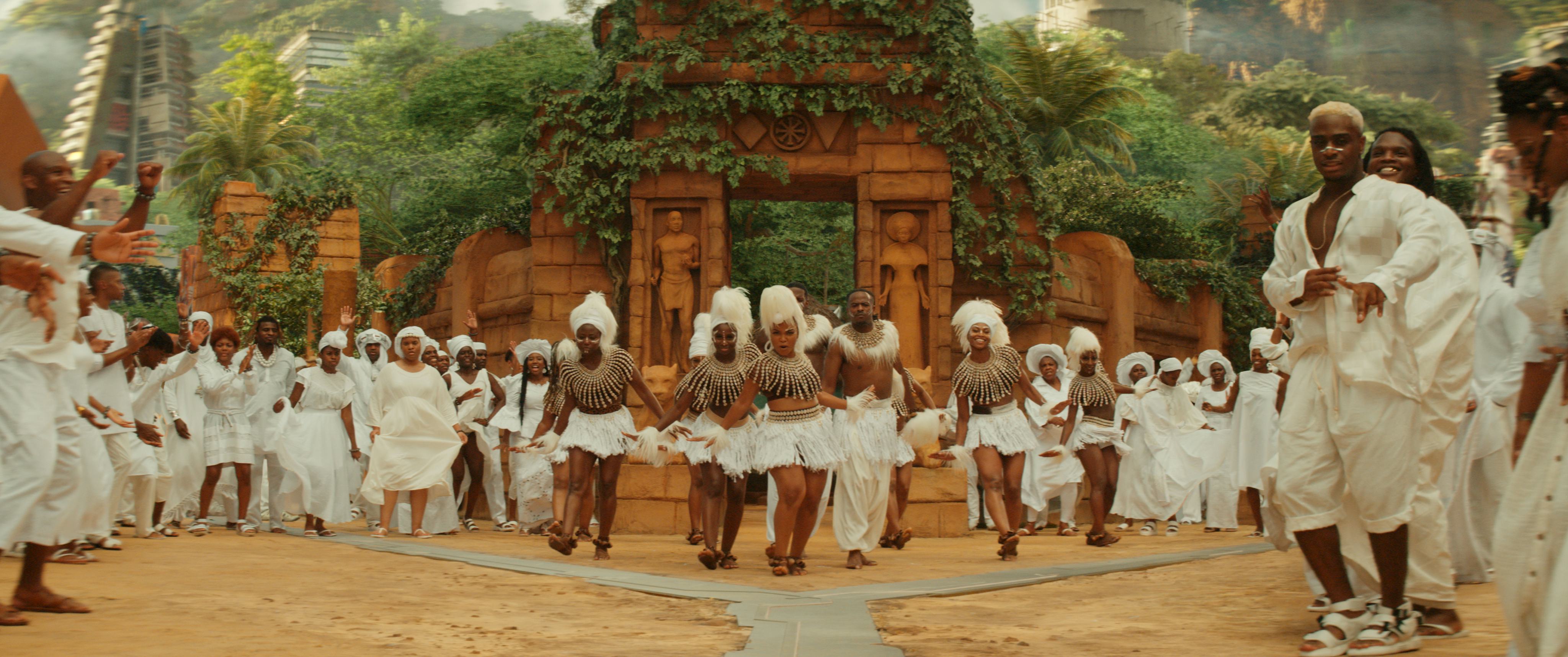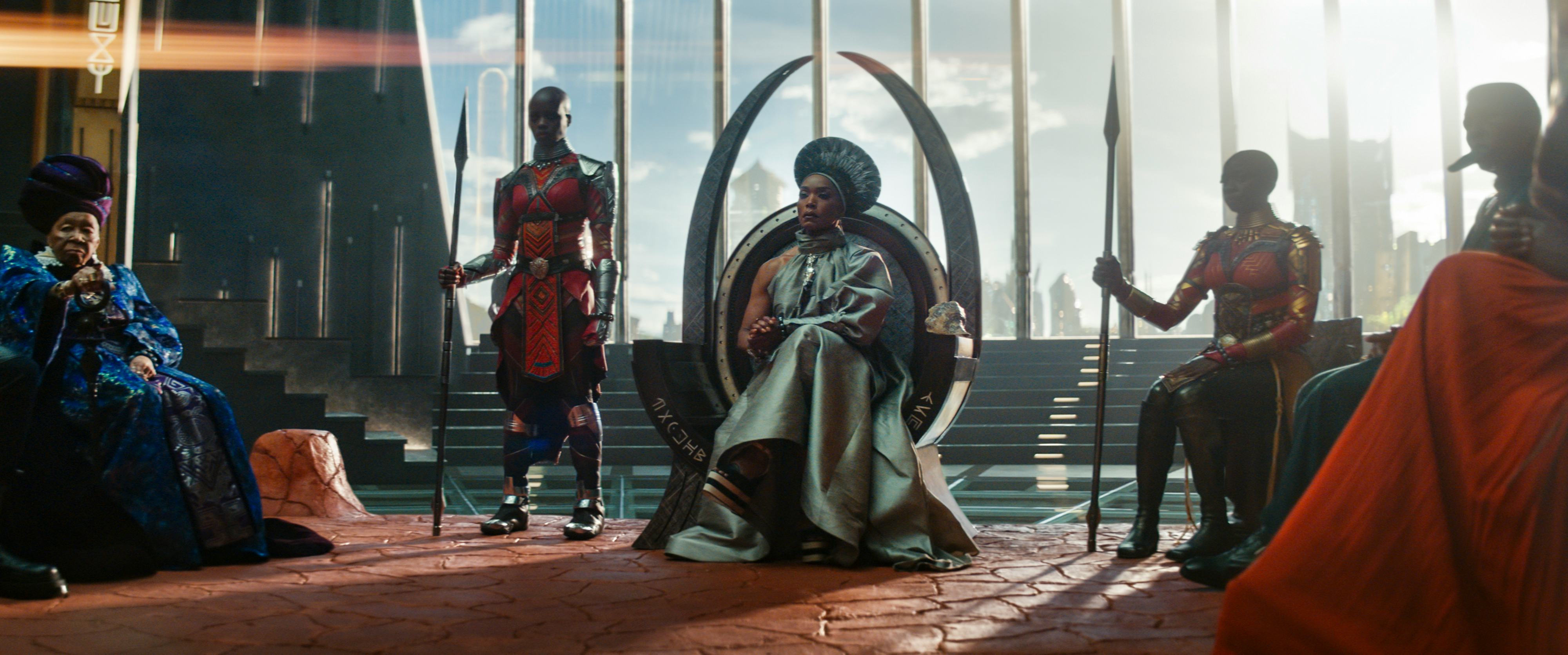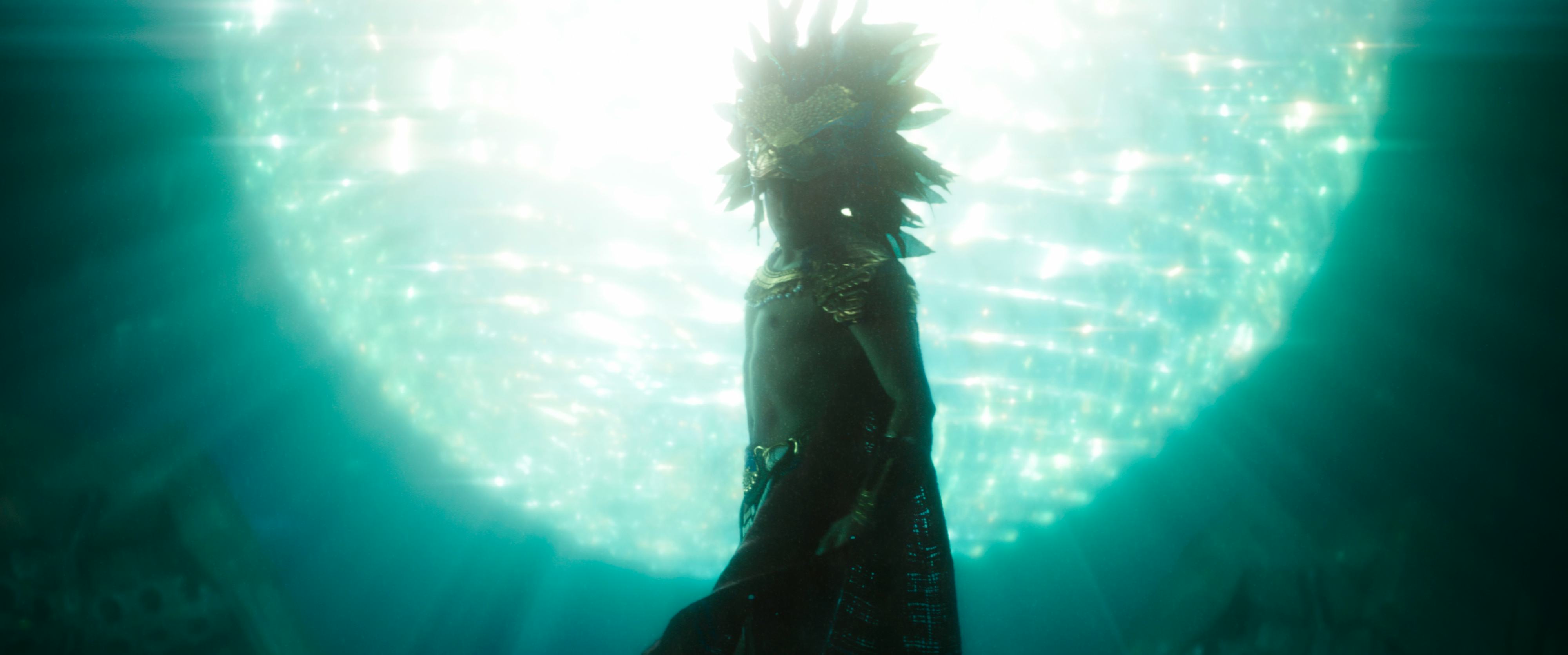
Black Panther: Wakanda Forever is both a leap into the future and a sunset-drenched mausoleum to Chadwick Boseman.
The sequel to 2018’s Black Panther casts the late Boseman in amber as it trades Marvel’s weary house style for longer shots where tender feelings breathe. Dissolve transitions, scarcely used by the editors of this 30-film franchise, render dreamlike meditations of bereavement. And this heavy tone is amplified by the severity of its fantastical conflict as Wakanda is threatened by a secret underwater kingdom of Talokan and its ruthless leader Namor.
From Marvel Studios and director Ryan Coogler, Wakanda Forever is a loving tribute to an actor whose regal oeuvre epitomized Black male excellence. He was Jackie Robinson, Thurgood Marshall, James Brown, and T’Challa. He will always occupy that last role, no matter who becomes Black Panther next. With its Black Panther sequel, the entirety of the Marvel Universe, including the real-life studio and fans, grieve a man who meant more than his role.
Wakanda Forever understands the gravity of its moment. This is not to say it doesn’t have fun, nor is the action a snooze. But the absence of Boseman lends Coogler’s newest movie with ambitious solemnity rarely seen from a studio known for plastic blockbusters. With ruminations on personal loss and the pride of nations, Black Panther: Wakanda Forever is a monumental epic whose thematic and narrative maturity elevates the superhero genre to breathtaking new heights.
But grief is not felt in slow motion. It hits hard and fast, like waves breaking on the shore. Though time heals wounds, it moves ruthlessly onward, leaving all we mourn as memories. Black Panther: Wakanda Forever has the power to be a cathartic experience, whether you’re mourning Chadwick Boseman or something more personal.

On the matter of T’Challa’s death, there is no explanation. We’re informed of some disease, followed by heart failure. But it doesn’t matter. His body simply failed. This is how Wakanda Forever opens, with sister Shuri (Letitia Wright), a scientific genius, quietly praying to the gods in vulnerable desperation. When T’Challa dies, Shuri loses faith in the fables of her people. Turned cynical, she refuses to burn her white funeral garbs as per tradition.
Shuri is soon pitted against Namor (Tenoch Huerta), himself a king like her brother. Dripping with treachery and sex appeal, Huerta embodies one of Marvel’s earliest anti-heroes who feverishly defends his kingdom, “Talokan” (in the comics, Atlantis). Unlike the baroque designs of Aquaman, Talokan’s Mesoamerican flavoring — including its inhabitants’ spoken Yucatan Mayan — grounds it with a cultural identity that parallels Wakanda’s imaginative representation of Pan-Africanism.
The optics of these two nations at war is bound to stir conversations about colonialism’s lasting role in Black and brown relations. Heavy stuff for a movie that also sells Hasbro toys. But Coogler's direction ensures the deeper meaning is never eclipsed by the spectacle.

Marvel’s Phase Four slate is replete with the passing of titles. Anthony Mackie is Captain America. Florence Pugh is a Black Widow. Hailee Steinfeld is the new Hawkeye. The tragedy of Wakanda Forever is it was not supposed to do the same. Chadwick Boseman was meant for this movie. He was meant to stare down Namor and lead the charge in Avengers: Secret Wars. Boseman was to do it all for longer than we were allowed to have him.
It’s a heavy ask of the movie’s cast to fill a giant’s shoes. Everyone succeeds how they can, including returning Lupita N’yongo (as “Nakia,” T’Challa’s former flame still struggling with her grief) and Winston Duke (as “M’Baku,” T’Challa’s former rival and a Black Panther standout who takes an even bigger role in the sequel). Michaela Coel (I May Destroy You) joins as “Aneka,” a formidable but woefully underused addition to the Dora Milaje.
Special words must be spared for the arrival of Dominique Thorne as Riri Williams, an MIT undergrad who kitbashes her own Iron Man suit. It’s no surprise Marvel is already developing an Ironheart spinoff.
But two in the cast deserve special recognition. Angela Bassett, as Queen Ramonda, wields restrained fury, her thundering cries as a mourning mother moving a room to tears. Most of all there’s Wright, who upholds her share with gravitas. While the actress’ skepticisms of Covid-19 vaccinations undermine her character’s superhuman brilliance, Wright’s talents as an empathetic and maturing performer suspend disbelief. No longer the wise-cracking teen who pranked her brother, Shuri is austere, disillusioned, and struggling with a responsibility she never wanted.

While its length and emotional density can feel like a marathon, Black Panther: Wakanda Forever is a cinematic triumph. It’s a balm for the soul and a pleasure on the eyes, with magic hour light cultivating bittersweet longing. You don’t have to miss Chadwick Boseman, but in the movie’s grief, T’Challa becomes anyone we’ve lost these last two years and counting.
It’s tempting to wonder what Wakanda Forever would have been if not for the loss of Boseman. Perhaps it would have been rudimentary, propelled by rote set-piece plotting and clever, quirky dialogue. It would have been safe. But it would still have Chadwick Boseman. There’s something cruel in the universe’s machinations that Wakanda Forever can be so enriching and so nurturing without its generational talent to lead it. Wakanda Forever is wonderful, but the cost is unfair.
When we first met Boseman as T’Challa in 2016’s Captain America: Civil War, he memorably said, “Death is not the end.” It’s true. It’s only forever.
Black Panther: Wakanda Forever opens in theaters on November 11.







